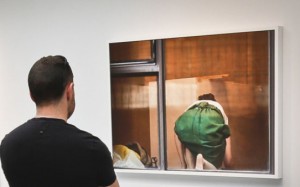Panasonic Corp said Monday that it has developed a solar lantern that doubles as a charger for people living without electricity.
With a built-in rechargeable battery to store solar energy during the day, the lantern provides light at night and can also be used as a power source to charge small mobile devices like mobile phones. The company said it plans to bring the lantern to the market in autumn this year after conducting marketing research in off-grid areas in Asia and Africa.
A prototype of the new solar lantern will be displayed at official side events at the 5th Tokyo International Conference on African Development (TICAD V) to be held from June 1 to 3 in Yokohama.
About 1.32 billion people, or approximately 20% of the world’s population, are still living without electricity. Many of these people use kerosene lamps for lighting. However, kerosene lamps not only fail to provide sufficient light but also emit toxic fumes and pose a fire risk. In addition, people living off-grid are facing a problem of charging their mobile phones, which have become a popular communication tool for them.
I – Word Understanding
Off-grid areas – areas not connected to the main energy transmission grid
Prototype – an original or first model of something from which other forms are copied or developed
Emit toxic fumes – to send out poisonous gas or smoke
II – Have your say
1.A true off-grid house is able to operate completely independently of all traditional public utility services. It is popularized by some Hollywood celebrities. In 2006, it was reported that there were 180,000 living off grid.
2.Over 1.2 billion people – 20% of the world’s population – are still without access to electricity worldwide, almost all of whom live in developing countries. This includes about 550 million in Africa, and over 400 million in India.
3.In Africa, small inexpensive Chinese-made solar electric systems have become available, and as of 2010, they were being installed on mud huts in Kenyan villages, and in other countries. Inexpensive solar panels and LED lights make the systems affordable.
4.Have you heard about the Solar Bottle Bulb?
078 Panasonic develops solar lantern for people living without electricity



